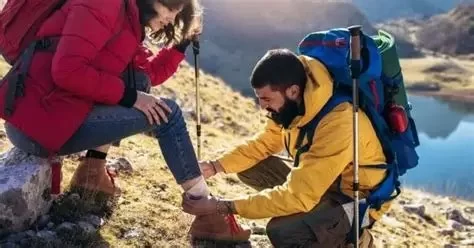Learn the benefits of outdoor first aid training, from improving camping and hiking safety to building emergency response skills. Discover why every adventurer should be prepared.

- 1 - Why Outdoor First Aid Training Matters
- 2 - Handling Emergencies in Remote Environments
- 3 - Essential Skills Gained Through Training
- 4 - Real-Life Stories That Highlight Its Importance
- 5 - Building Confidence and Reducing Fear Outdoors
- 6 - Creating a Culture of Community Preparedness
1 - Why Outdoor First Aid Training Matters
Spending time in nature comes with risks, whether you are camping, hiking, or exploring remote wilderness. Unlike urban environments, help is not always minutes away. Outdoor first aid training equips people with the knowledge to respond quickly and effectively when accidents happen. It bridges the gap between the incident and professional medical care, giving adventurers peace of mind. For many outdoor enthusiasts, this training becomes as essential as packing a tent or compass. At resorts such as Pine Cliff Resort, the emphasis on preparedness is a key part of enjoying the outdoors safely and confidently.
2 - Handling Emergencies in Remote Environments
One of the major benefits of outdoor first aid training is learning how to manage emergencies where resources are limited. Imagine spraining an ankle while hiking miles away from the nearest road or encountering a bee sting that causes a severe allergic reaction. Training programs cover these scenarios in detail, showing participants how to stabilize injuries, use improvised tools, and prioritize care. Unlike standard first aid, outdoor training emphasizes self-reliance and adaptability, two qualities that can make the difference between discomfort and disaster.
3 - Essential Skills Gained Through Training
Participants in outdoor first aid training gain a wide range of practical skills. These include wound cleaning and bandaging, splinting fractures, recognizing signs of hypothermia or heatstroke, and performing CPR in rugged environments. Equally important, students learn how to communicate effectively during crises, ensuring calm decision-making. Many programs also teach how to assemble and use specialized first aid kits for camping or hiking trips. These skills not only apply in the wilderness but also translate to everyday life, creating a more resilient and prepared individual.
4 - Real-Life Stories That Highlight Its Importance
Numerous real-life incidents showcase why outdoor first aid training saves lives. For example, a group of hikers in Colorado credited their training when one member fell and fractured his leg on a steep trail. They managed to stabilize him, keep him warm, and safely coordinate an evacuation. Stories like these circulate widely in the outdoor community, reinforcing the value of preparedness. Hearing about these successful interventions inspires others to seek training, transforming what could have been tragedies into stories of resilience and smart response.
5 - Building Confidence and Reducing Fear Outdoors
Exploring new landscapes often stirs excitement mixed with worry. Parents bringing children camping or individuals tackling their first backcountry trek may feel uneasy about potential hazards. Outdoor first aid training significantly reduces that anxiety. By knowing how to handle emergencies, people step into nature with greater confidence. This confidence enhances the overall experience, allowing adventurers to focus on the beauty around them rather than lingering fears. Resorts like Pine Cliff Resort encourage guests to explore boldly while promoting training as a way to eliminate hesitation.
6 - Creating a Culture of Community Preparedness
Another benefit of outdoor first aid training is its ripple effect on communities. When more individuals are trained, group outings become safer, as responsibility for safety is shared rather than placed on one leader. Families, friends, and even large hiking groups find reassurance in knowing multiple people can respond to emergencies. This culture of preparedness strengthens trust among participants and builds resilience in outdoor communities. In the long run, it encourages more people to enjoy nature responsibly, promoting both safety and adventure as complementary goals.
S-Camp
7101 Hinkst Hollow Rd, Viroqua, WI 54665, USA
Visit Location PageFamous Eagle Program Hall
Liberty Township, MO 63640, USA
Visit Location Page